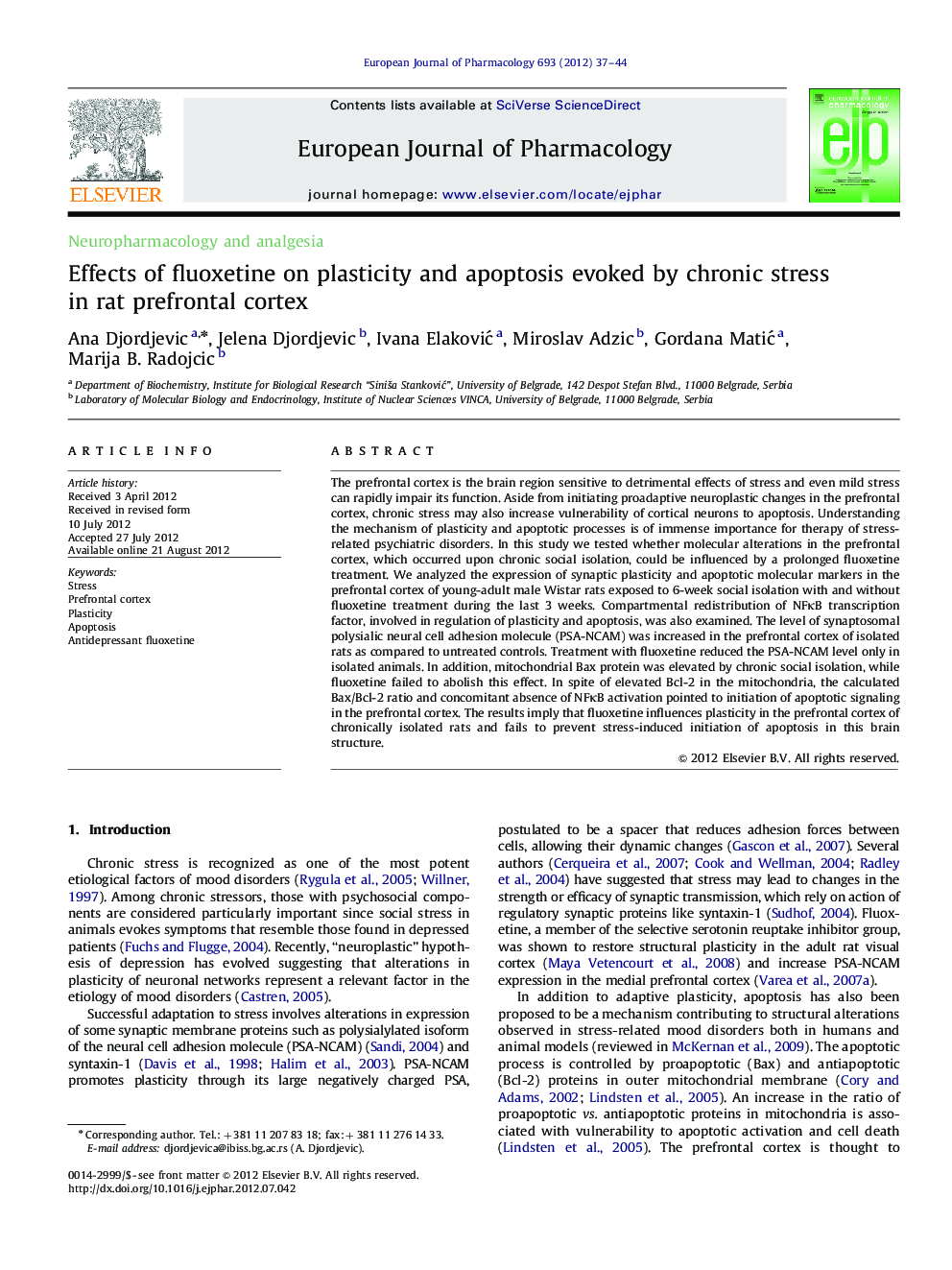| Article ID | Journal | Published Year | Pages | File Type |
|---|---|---|---|---|
| 5829147 | European Journal of Pharmacology | 2012 | 8 Pages |
Abstract
The prefrontal cortex is the brain region sensitive to detrimental effects of stress and even mild stress can rapidly impair its function. Aside from initiating proadaptive neuroplastic changes in the prefrontal cortex, chronic stress may also increase vulnerability of cortical neurons to apoptosis. Understanding the mechanism of plasticity and apoptotic processes is of immense importance for therapy of stress-related psychiatric disorders. In this study we tested whether molecular alterations in the prefrontal cortex, which occurred upon chronic social isolation, could be influenced by a prolonged fluoxetine treatment. We analyzed the expression of synaptic plasticity and apoptotic molecular markers in the prefrontal cortex of young-adult male Wistar rats exposed to 6-week social isolation with and without fluoxetine treatment during the last 3 weeks. Compartmental redistribution of NFκB transcription factor, involved in regulation of plasticity and apoptosis, was also examined. The level of synaptosomal polysialic neural cell adhesion molecule (PSA-NCAM) was increased in the prefrontal cortex of isolated rats as compared to untreated controls. Treatment with fluoxetine reduced the PSA-NCAM level only in isolated animals. In addition, mitochondrial Bax protein was elevated by chronic social isolation, while fluoxetine failed to abolish this effect. In spite of elevated Bcl-2 in the mitochondria, the calculated Bax/Bcl-2 ratio and concomitant absence of NFκB activation pointed to initiation of apoptotic signaling in the prefrontal cortex. The results imply that fluoxetine influences plasticity in the prefrontal cortex of chronically isolated rats and fails to prevent stress-induced initiation of apoptosis in this brain structure.
Related Topics
Life Sciences
Neuroscience
Cellular and Molecular Neuroscience
Authors
Ana Djordjevic, Jelena Djordjevic, Ivana ElakoviÄ, Miroslav Adzic, Gordana MatiÄ, Marija B. Radojcic,
